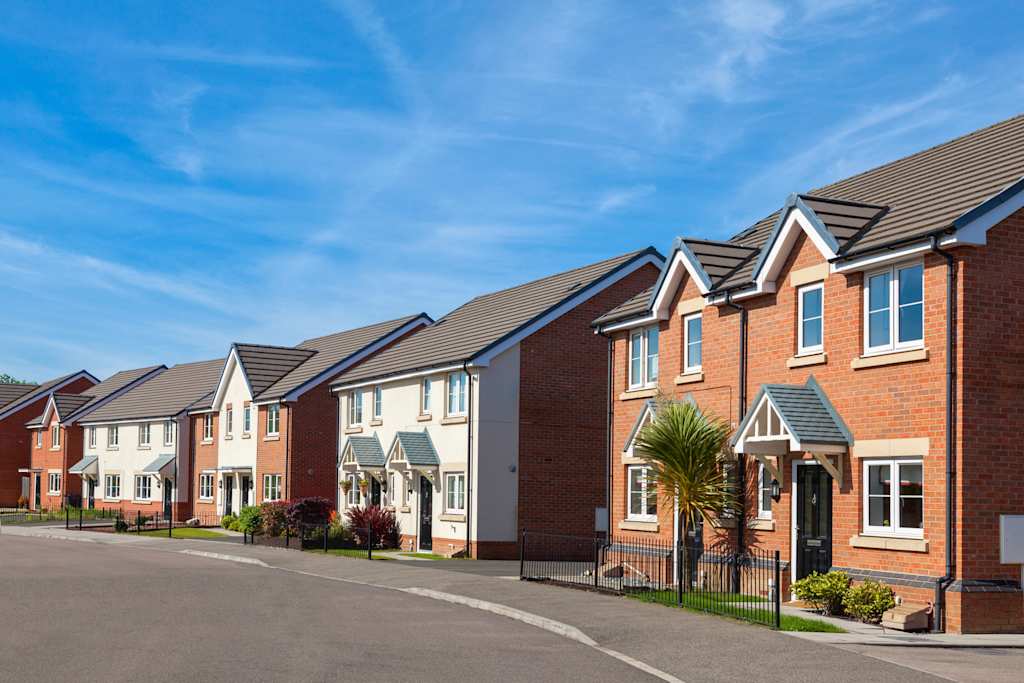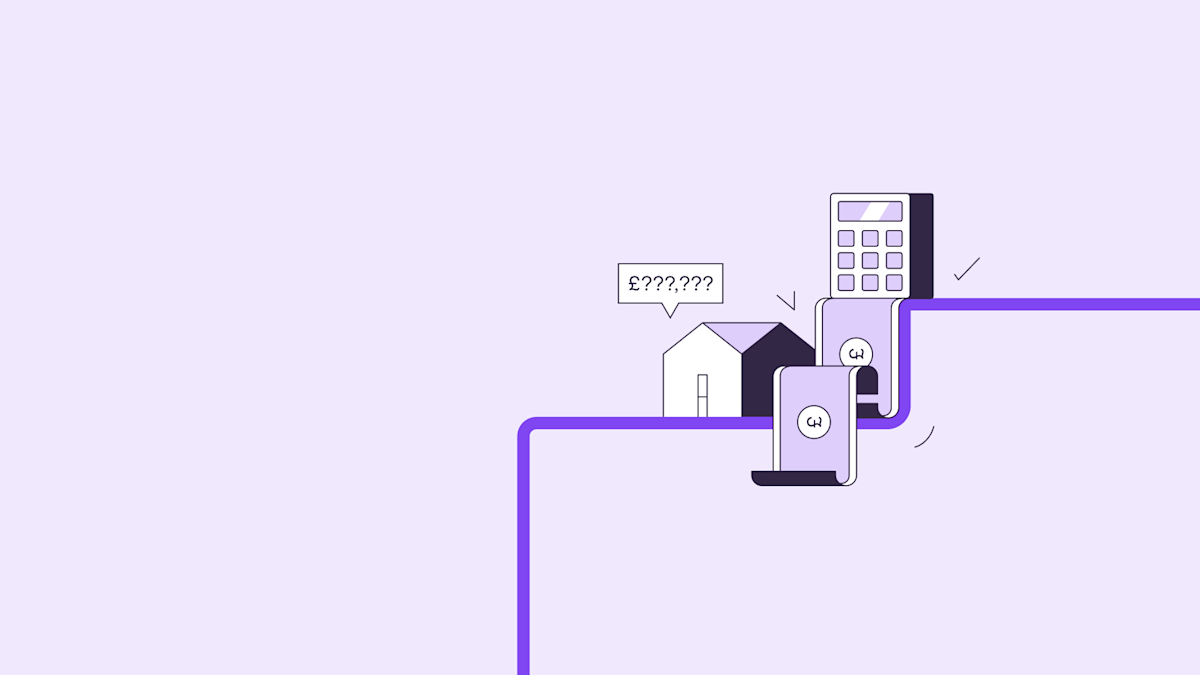
Mortgage rates are likely to stay in the 4-5% range this year but changes to affordability testing gives buyers a boost.

Calculate your mortgage affordability
Discover what homes are within budget
Arrange your mortgage in principle
What type of buyer are you?
We'll need to know your income, deposit amount and what you're hoping to spend.
Tell us the type of home you want to buy and where you want to live.
Know what mortgage you can afford with no fees and no credit checks on your finances.

Our mortgage affordability calculator uses important details to accurately tell you how much you can borrow for a mortgage.
Borrow more or borrow less? Change the size of your deposit, interest rate or term to calculate your monthly mortgage repayments.


Whether you need a garden, office, two beds or five, we'll show you the perfect homes for you in the area you want to live.
Discover the maximum mortgage you could get
Establish your monthly repayments
See homes you know you can afford
With no fees and no credit checks on your finances.

Generally, you can get a mortgage between 4 and 4.5 times your total household income for a mortgage.
The most important thing lenders look at when you’re borrowing for a mortgage is your monthly income. The second most important thing is your monthly outgoings - and how much you can comfortably repay on a mortgage.


The main thing that will affect how much you can borrow is your monthly income. Here’s a rough breakdown of how your salary translates to how much you can borrow for a mortgage.
If you have a £30,000 salary, you can usually borrow £120-135,000 for a mortgage
£40,000 salary: £160-180,000 mortgage
£50,000 salary: £220-225,000 mortgage
£60,000 salary: £240-270,000 mortgage
£70,000 salary: £280-315,000 mortgage
We know getting a mortgage can seem pretty complicated, so we've listed the questions we hear all the time.
How to calculate mortgage affordability
Most mortgage affordability calculators will multiply your income by 4 or 5. However, ours is a little more refined.
We take into account the number of applicants on the mortgage, alongside any dependents and credit commitments you may have, for a significantly more accurate result.
This provides a window of what your potential borrowing could be, up to the maximum borrowing amount.
How do lenders calculate affordability?
When offering a mortgage, lenders look at your monthly income, your monthly outgoings - and how much you can comfortably afford to borrow and repay for a mortgage. They'll check:
Your credit rating and any loans or credit balances
Any other large outgoings, including children and dependents
Your age and employment status
Any upcoming changes to your financial position, like if you're changing job or expecting a child
Your preferred mortgage term
How does my down payment affect affordability?
The larger your down payment or deposit, the more favourably lenders will view your application.
A larger down payment also affects the mortgage interest rate you could pay, with the best rates reserved for those with larger deposits.
For example, a down payment of 10% of a property's total value will open up better interest rates than a down payment of 5%.
The best mortgage rates become available to you once your down payment reaches 40%.
Can I use this calculator if I have student loans or other debts?
This calculator doesn't take your monthly outgoings into account. It shows how much you could potentially borrow.
When you go through the process of arranging a Mortgage in Principle with us, which involves a soft credit check and doesn't commit you taking out a mortgage, we'll then start to look into your monthly outgoings too.
Once your income and monthly outgoings are taken into account, you'll have a more solid idea of how much you can borrow from a lender.
How is affordability for a mortgage calculated?
It's generally accepted that you shouldn't spend more than 28% of your monthly income on your mortgage and home insurance costs.
Overall, you shouldn't spend more than 36% of your monthly income on your general household costs, including:
mortgage payments
insurance
household bills
any debts.
What does mortgage eligibility mean?
Mortgage eligibility is all about meeting the criteria needed to qualify for a mortgage loan.
Lenders look into a variety of factors to determine whether someone can repay a mortgage and if they're a low risk for the lender. They include things like your income, credit score, any debts you may have and your employment history.
As part of this, lenders carry out affordability testing. This is whether the borrower can afford a 'stressed mortgage rate' at a higher level than the borrower will pay.
The good news for borrowers is an upcoming relaxation in how lenders assess the affordability of new mortgages in 2025. This will mean a boost to buying power. Find out more about the latest affordability testing changes.
Are interest rates going up or down? And what does this mean for mortgages? Get the latest.

Mortgage rates are likely to stay in the 4-5% range this year but changes to affordability testing gives buyers a boost.

The Bank of England has cut the base rate to 4.25%. Here’s how it will impact interest rates and the mortgage market, and what it means for your move.

27% of homeowners with a mortgage are on their lender’s standard variable rate. Could you be one of them?

First-time buyers accounted for more than half of all home loans in 2023 - and more than two-thirds teamed up to secure their own homes.

The first full week back after the new year has seen buyer interest jump out of the blocks faster than last year as mortgage rates drop. Get the latest with Richard Donnell.

95% mortgage guarantee scheme extended, 40,000 new homes to be built and Local Housing Allowance unfrozen to help renters on the lowest incomes.

Marathon mortgages, cutting pensions and raiding savings: how homeowners are coping as mortgage rates hover at their highest levels for 15 years.

42% of adults aged 18-39 who don’t own a home say they’ve given up on the idea of buying one in the next ten years, including 38% of those earning £60,000+.

As lenders withdraw some of their products, we take a look at what’s triggered the current turmoil in the mortgage market and what buyers and homeowners can do.

The Bank of England’s latest increase adds a further £60-a-month to repayments for homeowners with a £200,000 variable mortgage.

Core inflation rose to a new 31-year high in May, suggesting the Bank of England will have to increase interest rates by more than previously expected.

Leeds Building Society has teamed up with Experian to incorporate regular direct debit payments into credit scores for first-time buyers.